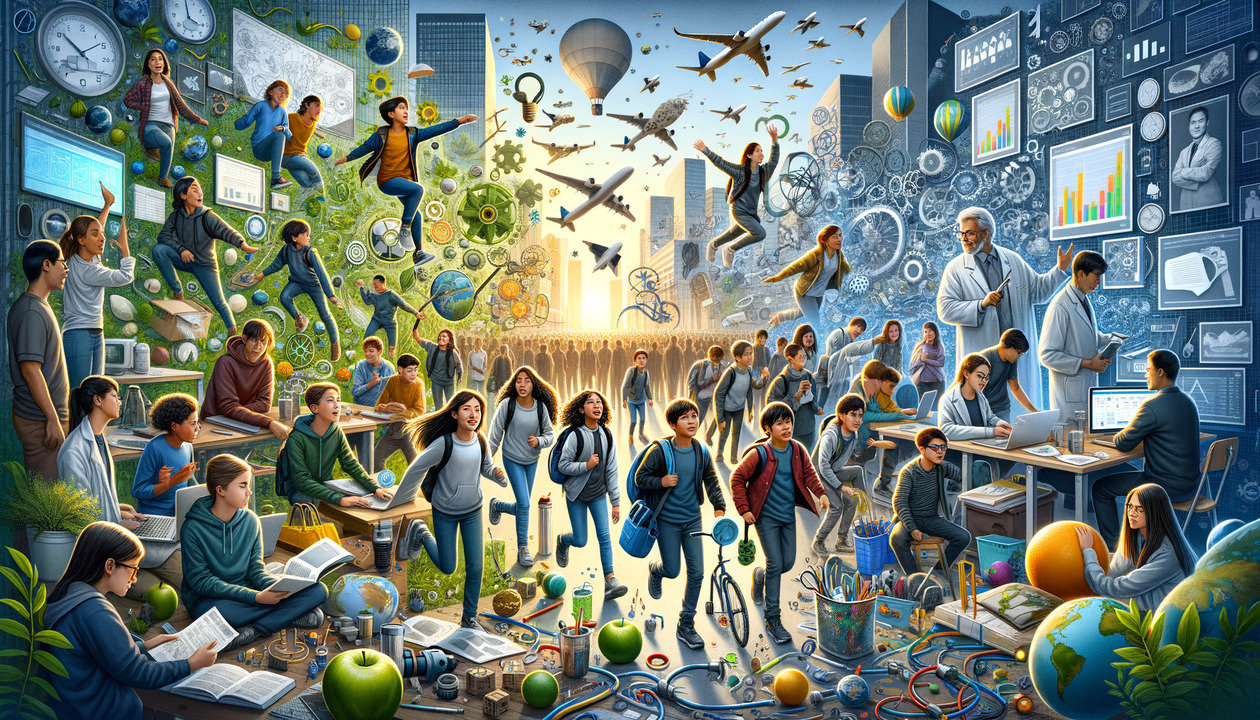
Progressive Environmental Science Education
Immerse in sustainable practices and environmental consulting. Navigate compliance with environmental regulations. Contribute to a sustainable future through innovative solutions.
In today's rapidly evolving world, the importance of progressive environmental science education cannot be overstated. As we face unprecedented environmental challenges, the need for comprehensive education in sustainable practices and environmental consulting becomes imperative. This article delves into how students can immerse themselves in the intricacies of sustainability, navigate the complexities of environmental regulations, and contribute to a sustainable future through innovative solutions.
Immersing in Sustainable Practices
The foundation of any robust environmental science education is deep knowledge of sustainable practices. These practices form the bedrock upon which future scientists, policymakers, and environmental advocates build. Students engaged in progressive environmental science curricula have the opportunity to learn about the latest methods and technologies in sustainable resource management, energy conservation, and waste reduction. Through hands-on experiences, they can see the real-world impact of these techniques, fostering a deeper understanding of both the challenges and solutions in environmental sustainability.
Real-World Applications
A critical aspect of immersing in sustainable practices is understanding their application in real-world scenarios. Through projects, internships, and collaborations with industry leaders, students gain invaluable insights into how sustainable practices are implemented across various sectors. This practical exposure equips students with the skills necessary to innovate and adapt as they transition from the classroom to the professional arena.
Navigating Compliance with Environmental Regulations
An essential component of environmental consulting is navigating the complex web of environmental regulations. These laws, which are designed to protect ecosystems and human health, require a nuanced understanding that goes beyond textbook learning. Students in progressive environmental science programs engage with real case studies and legal frameworks, giving them the competence to advise organizations on compliance.
The Role of Education in Regulation
Education plays a pivotal role in preparing future environmental consultants. Courses that focus on environmental policy, law, and ethics provide students with the foundational knowledge they need to operate effectively within regulatory landscapes. Understanding the intersections between law, policy, and science empowers students to craft compliant, innovative solutions that benefit both businesses and the environment.
Contributing to a Sustainable Future through Innovative Solutions
The ultimate goal of progressive environmental science education is to generate innovative solutions that contribute to a sustainable future. By integrating critical thinking, creativity, and technology, students can devise strategies that address the multifaceted challenges of climate change, biodiversity loss, and pollution.
Case Studies in Innovation
Programs highlighted in progressive environmental education often showcase successful case studies where innovative thinking has led to meaningful environmental improvements. These examples inspire students to pursue groundbreaking research and projects that pave the way for sustainable advancements.
Encouraging Entrepreneurial Spirit
Moreover, students are encouraged to embrace an entrepreneurial spirit, facilitating the creation of startups and initiatives focused on environmental technology and sustainable business practices. This approach not only fosters individual growth but also contributes to global environmental solutions.
In conclusion, progressive environmental science education is indispensable for preparing the next generation of environmental leaders. By immersing students in sustainable practices, teaching them to navigate the intricacies of environmental regulations, and inspiring them to innovate, educational institutions equip students with the tools needed to build a better, more sustainable world. Through such comprehensive programs, we can usher in a future where humanity lives in harmony with the environment, ensuring a thriving planet for generations to come.